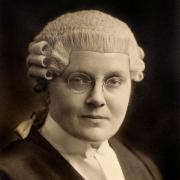What have Bernard Matthews, Robin Williams and Peter Ustinov got in common? No prizes for working out that they are all dead, but what might be less well known is that post-death they all had major disputes over their estates.

As one commentator remarked “nothing sets friends and family at each other’s throats more than a death in the family and a fight over money.”
This is a sad, but not unfamiliar truth, brought about by the rising value of estates (mainly down to inflated house prices), second and sometimes third marriages which breed disagreement between step-children and step-parents alike, coupled with a greater awareness that it is now possible to challenge an estate.
Taking steps to recover an interest, or protect one, is not always easy and the complexity of the law in this area can sometimes get in the way of an understanding of the circumstances in which a challenge may be had.
The range and type of possible disputes means any generalisation is impossible, but there are some common themes.
.
Great Expectations
Beneficiaries have expectations as to what they will receive from a relative’s estate. That is neither unusual nor untoward but when their expectation is not met it may give rise to genuine concerns. Take the case of someone either excluded under a Will or who receives significantly less than other beneficiaries. If they have needs – perhaps for accommodation, or medical expenses – they may be able to challenge the estate for a greater interest to meet those needs. Certainly, if that person is a surviving spouse and they have not received a significant interest they will more often than not have a strong claim. Children (including adult children), dependants and cohabitees can also bring claims where they may feel they have been unjustly left out.
They may also wish to challenge the Will. If the Will was made when the deceased lacked capacity then it will certainly be invalid, although simply because someone had declining capacity when they made a Will does not mean it is invalid. However, with an ageing population suffering a greater level and range of chronic diseases, such as Alzheimer’s, the risk is greater than it has ever been. Other features that may exist are a mixture of declining capacity mixed with errant relatives who have been overly involved in encouraging someone to make a Will in their favour, or cases, at the most extreme, where there is evidence of outright coercion or undue influence. All these are bases upon which a Will may be found to be invalid.
Executors can also be in the firing line when a dispute arises and it is important that they act appropriately. Disputes concerning Wills and claims for a greater interest in the estate should see them act neutrally (i.e. not preferring one party or another) but action may be required in certain situations. A common case is financial abuse by relatives or other trusted friends who have siphoned off the deceased’s money or assets as their own, which may only be discovered after death on examination of the deceased’s estate. Naturally, the intended beneficiaries will want to see recovery of the missing value for their rightful inheritance and executors should take steps to ensure this is done.
Paying For It
A common question is how can I fund case? A variety of funding options exist these days (no ‘one size fits all’ approach anymore) and these range from traditional ‘pay as you go’, to deferred fee arrangements (where the costs are recovered at the end of the matter and then only if you win). With the ‘pay as you go’ model funding can be provided by specialist lenders and who will lend if they have satisfied themselves that the case is strong. This acts as a useful cross-check on the viability of cases.
It has to be remembered that 95% of all cases will settle early, well before trial and often before any court proceedings have been started. Under court guidelines parties must assess a case early and seek out settlement options as soon as possible. This theme permeates the decision-making and management of all cases, minimising costs all round.
.
Lloyd Junor is Partner & Head of Contentious Trust & Probate, at Adams & Remers LLP, a well-established law firm based in Lewes and London, with clients country-wide.
Adams & Remers practises in dispute resolution, private client, property, and corporate & commercial work. The firm is known for specialisms in contentious trust & probate disputes, agriculture & rural estates, listed property, care homes, and development option agreements.
www.adamsandremers.com | lloyd.junor@adamsandremers.com | 01273 403350



























